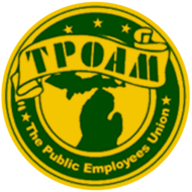Milton Isaiah and Joseph Goforth were police officers for Pine Lawn, Missouri. Isaiah and Goforth were fired after complaining about a number of the Police Chief’s policies. In particular, they objected to orders that, as they described them, (1) required officers, when responding to a call at home, to arrest every individual in the home; (2) mandated that cars pulled over during traffic stops should be towed when the driver is arrested even if other individuals in the car were capable of driving it; (3) that officers should arrest occupants of vehicles for violations on their cars; (4) that officers should write more tickets; and (5) that officers assist employees at Imo’s Pizza Parlor in Northwoods, Missouri, which is outside of the City of Pine Lawn.
Isaiah and Goforth complained to their supervisors about the orders, but neither complained to the FBI or other third-party police agency. When they were fired, Isaiah and Goforth filed a free-speech lawsuit, contending that their complaints were shielded by the First Amendment.
Citing the Supreme Court’s decision in Garcetti v. Ceballos, 547 U.S. 410 (2006), a federal court dismissed the lawsuit. The first question, the Court found, was whether the employee spoke as a citizen on a matter of public concern: “If the answer is no, the employee has no First Amendment cause of action based on his or her employer’s reaction to the speech. If the answer is yes, then the possibility of a First Amendment claim arises.”
The Court found the officers’ claims could not meet this basic test. The Court held that “the speech at issue herein was conveyed only to other Pine Lawn police personnel and a few friends. No other law enforcement agencies were contacted regarding the possible illegality of the policies, directives, and orders. Moreover, the officers, as part of their responsibilities as police officers, had a duty to report any action which they perceived as illegal or improper. Although the officers threatened to go to the FBI, the record is completely devoid of any evidence that the speech was conveyed as private citizens speaking on matters of public concern.
“The officers spoke as public employees on matters relating to the manner in which they were required to do their jobs. Because the Court determines that the speech involved in this matter was not spoken by Plaintiffs as private citizens in the context of matters of public concern, but rather, as public employees regarding the manner in which they were required to perform their jobs, their complaints are not protected by the First Amendment.”
Isaiah v. City of Pine Lawn, 2014 WL 3928270 (E.D. Mo. 2014).
The above article has appeared in a previous issue of Public Safety Labor News and has been reprinted courtesy of Labor Relations Information System. These articles are for informational purposes only.

Leave a Reply